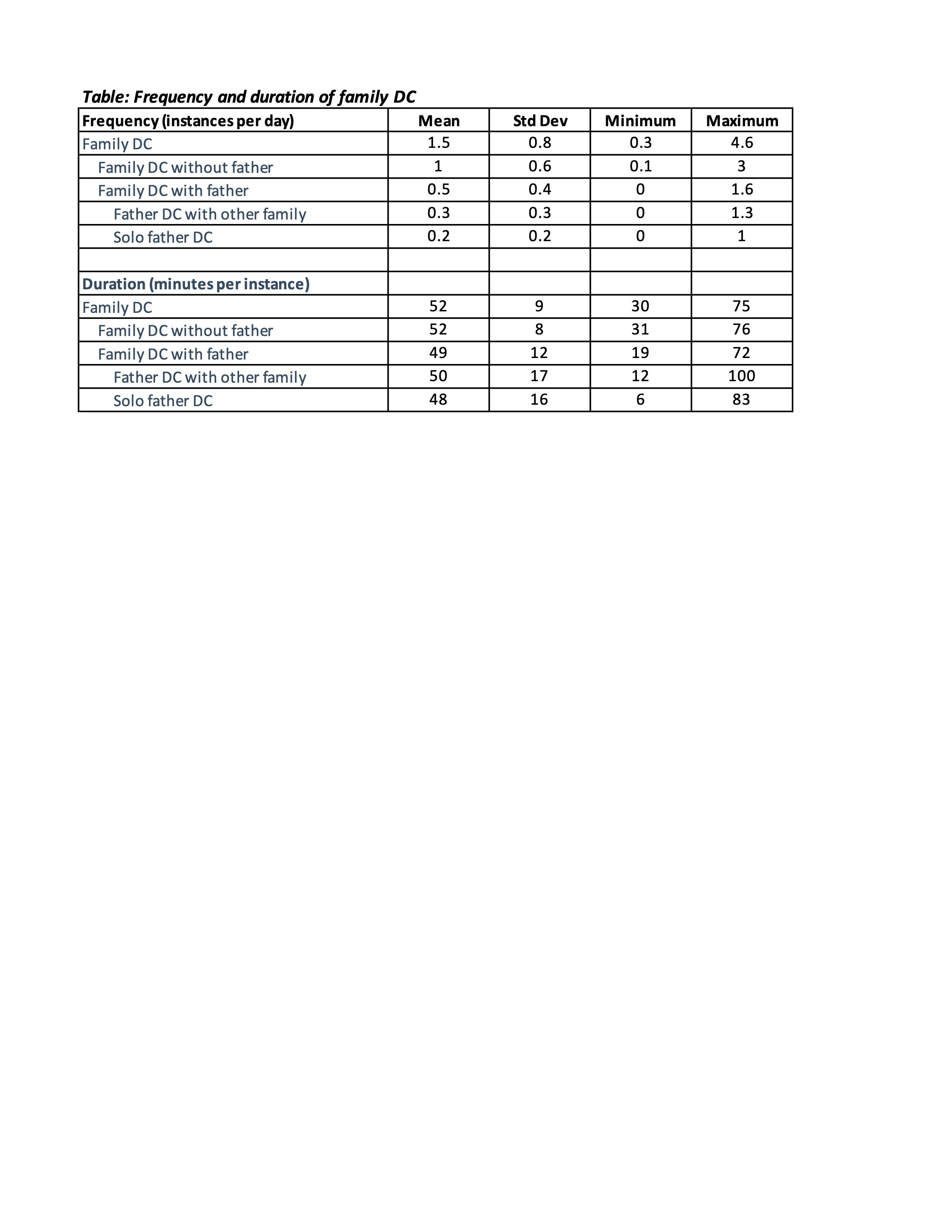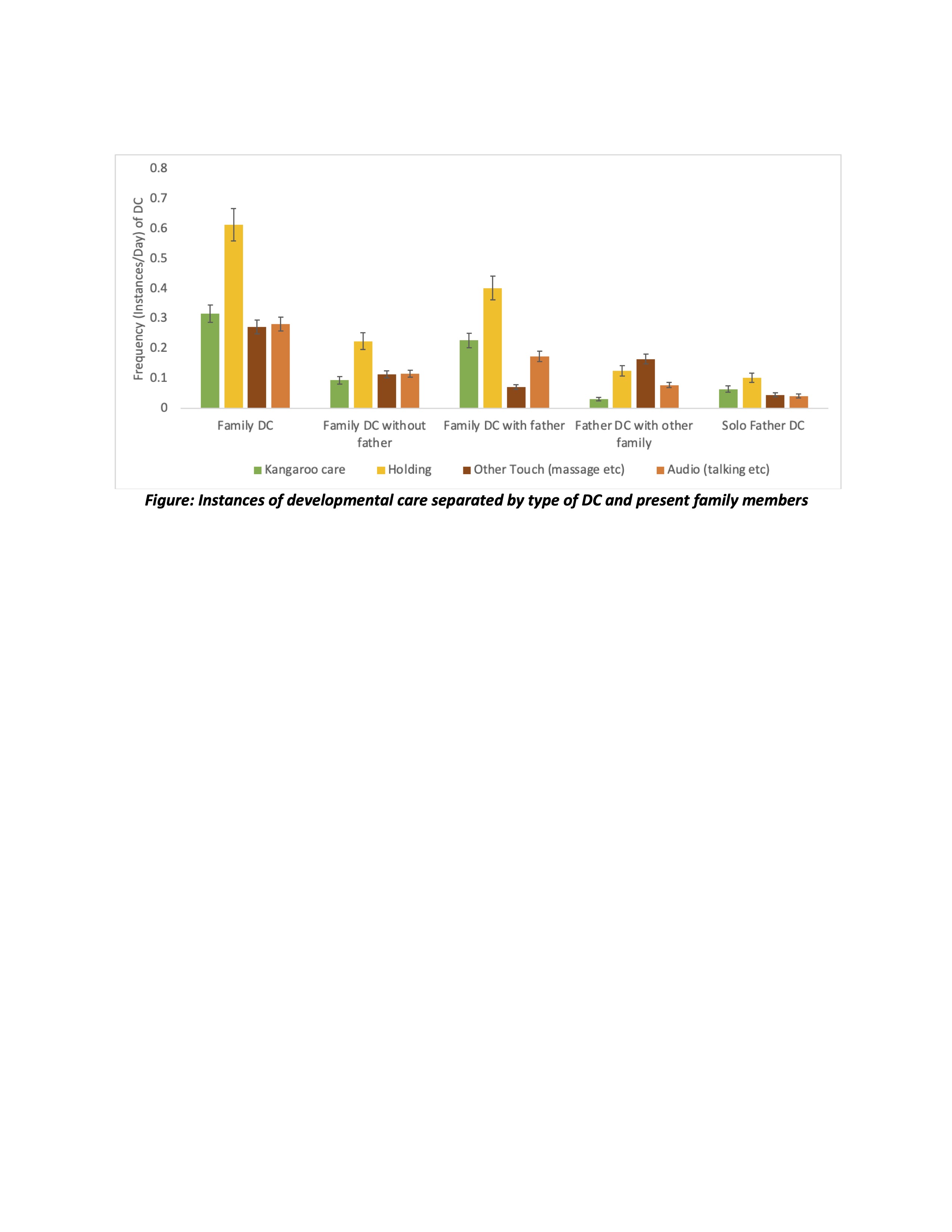Neonatal General
Neonatal General 8: NICU Practices 2
181 - Patterns of father involvement in developmental care (DC) activities with preterm infants in the neonatal intensive care unit (NICU)
Publication Number: 181.332

Aviva P. Aiden, MD PhD
Clinical Fellow
Stanford University School of Medicine
Palo Alto, California, United States
Presenting Author(s)
Background: Studies show that both infants and parents benefit from father involvement in care of their hospitalized infants. However, few have provided detailed and comprehensive documentation of DC activities in the NICU or explored factors which influence father involvement.
Objective: To assess DC provided by fathers (vs. other family members) in the NICU and explore whether socioeconomic factors and sex of the infant impacts frequency, rate, and duration of DC activities.
Design/Methods: Routine daily charting by bedside nurses tracks all DC activities, noting time per instance, type of care (e.g., Kangaroo Care, holding etc), and who was present for care (e.g., mother, father, other family members). All DC instances provided to preterm infants (n=68) over their entire NICU stay were analyzed, identifying those instances when fathers engaged in the care with or without other family members. All infants were born < 32 weeks gestational age (GA) and were admitted to the NICU at < 7 days of life. In total, over 15,000 individual instances of DC were assessed.
Results:
On average, infants experienced 79 minutes (1.5 instances) of DC/day from any family member. A father was present, on average, for 27 min/day compared to 52 mins/day when father was absent (p< 0.001). Fathers contributed to only 34% of all DC activities, while mothers were involved in 82% of all instances. Interestingly, the duration per instance was not significantly different whether a father is present vs. not (p=0.13), suggesting that father-delivered DC activities are likely to last as long as those delivered by other family members (Table & Figure).
We assessed the effects of several socioeconomic factors on fathers’ DC. The frequency of family DC was statistically equivalent regardless of insurance type. However, the duration of care provided per instance is longer where the infant has public insurance (54 minutes vs 48 minutes, p=0.005). Solo fathers provide DC to daughters on average 10 minutes longer than to sons (p=0.02 ).
Conclusion(s): These data provide a unique and comprehensive view into father involvement in DC activities for preterm infants in the NICU. The results suggest that a primary factor driving fathers’ DC time is frequency at the bedside, with limited effects of socioeconomic factors. Efforts to improve father visitation may impact total DC in NICU infants; fathers seem to represent an under-utilized source of family caregiving. More research is needed to explore barriers to fathers’ engagement in preterm infant care.

